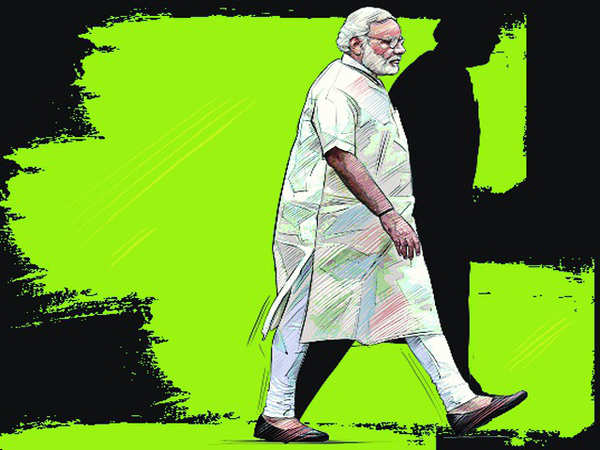As India heads towards the 2024 general elections, the political landscape is intensely scrutinized by analysts and the electorate alike. The Bharatiya Janata Party (BJP), led by Prime Minister Narendra Modi, has dominated Indian politics since 2014.
However, its tenure has not been without controversy and criticism. Simultaneously, the newly formed Indian National Developmental Inclusive Alliance (INDIA) bloc, a coalition of opposition parties, presents itself as a formidable challenger. This article critically examines the perceived failures of the BJP government and explores the potential advantages of the INDIA bloc in the upcoming elections.BJP Government Failures
Economic Performance
One of the critical areas of criticism against the BJP government is its economic performance. Despite high promises of economic reform and growth, several key economic indicators suggest shortcomings:
- Unemployment: Unemployment rates have been a significant concern. The National Sample Survey Office (NSSO) reported the unemployment rate at a 45-year high in 2017-2018, a statistic that has haunted the BJP administration. While the government has introduced various schemes to boost employment, critics argue these measures have not translated into substantial job creation.
- Demonetization: The 2016 demonetization, intended to curb black money and counterfeit currency, has been widely criticized. The sudden invalidation of high-value currency notes caused significant disruption in the economy, particularly affecting small businesses and the informal sector. Subsequent reports suggest the policy failed to achieve its primary objectives.
- GST Implementation: The Goods and Services Tax (GST), introduced in 2017, aimed to streamline India’s complex tax system. However, its implementation has been fraught with issues, including technical glitches and compliance burdens, particularly for small and medium-sized enterprises. The initial chaos and frequent rate changes led to confusion and economic disruption.
Social Policies and Governance
The BJP government’s tenure has also been marked by contentious social policies and governance issues:
- Citizenship Amendment Act (CAA) and National Register of Citizens (NRC): The introduction of CAA and the proposal for NRC have been highly polarizing. Critics argue that these measures discriminate against Muslims and threaten the secular fabric of India. Nationwide protests erupted in response, reflecting widespread dissent.
- Farmer Protests: The enactment of three farm laws in 2020 led to prolonged protests by farmers, particularly from Punjab and Haryana. The farmers argued that these laws would undermine their livelihoods by favoring large corporations. The government’s eventual repeal of the laws was seen as a significant climbdown and highlighted the administration’s disconnect with a crucial voter base.
- Human Rights and Democratic Backsliding: There have been growing concerns about human rights violations and a perceived erosion of democratic institutions. Instances of internet shutdowns, suppression of dissent, and the alleged misuse of investigative agencies against political opponents have raised alarms about the state of democracy in India.
Foreign Policy Challenges
While the BJP government has had successes in foreign policy, such as strengthening ties with the United States and Japan, it has faced challenges too:
- Relations with Neighbors: Relations with neighboring countries like Pakistan and China have been fraught with tension. The 2019 Pulwama attack and subsequent Balakot airstrike escalated tensions with Pakistan. The 2020 Galwan Valley clash with China highlighted ongoing border disputes and strained bilateral relations.
- Non-Aligned Movement: India’s traditional stance of non-alignment appears to have shifted, leading to concerns about India’s strategic autonomy. Critics argue that closer ties with the U.S. could complicate relations with other global powers, particularly Russia.
INDIA Bloc Advantages
In this context of BJP’s perceived failures, the INDIA bloc emerges with potential advantages that could sway the electorate in the 2024 elections.
Unity in Diversity
The INDIA bloc is a coalition of various opposition parties, including the Indian National Congress (INC), Trinamool Congress (TMC), Dravida Munnetra Kazhagam (DMK), and others. This coalition brings together diverse regional and national interests, which can be a formidable force against the BJP. The bloc’s ability to present a united front despite ideological differences demonstrates a strategic advantage.
Inclusive Agenda
The INDIA bloc has positioned itself as a champion of inclusive development, contrasting with the BJP’s policies that have often been criticized as divisive. The bloc emphasizes social harmony, protection of minority rights, and economic policies that prioritize the marginalized sections of society. This inclusive agenda could resonate with voters disillusioned by the BJP’s polarizing policies.
Experience and Leadership
Several leaders within the INDIA bloc have extensive political experience and governance track records. For instance, Mamata Banerjee (TMC) and M.K. Stalin (DMK) have demonstrated their administrative capabilities in West Bengal and Tamil Nadu, respectively. Their leadership could instill confidence among voters looking for stable and experienced governance.
Regional Strongholds
The INDIA bloc benefits from strong regional parties that have significant influence in their respective states. For example, the TMC in West Bengal, the DMK in Tamil Nadu, and the Shiv Sena (Uddhav Balasaheb Thackeray) in Maharashtra. These regional strongholds can mobilize substantial voter bases and challenge the BJP’s dominance.
Strategic Alliances and Electoral Arithmetic
The INDIA bloc’s formation itself is a strategic move to consolidate anti-BJP votes. By avoiding vote splits, particularly in states where the BJP is strong, the bloc can maximize its electoral gains. The coalition’s ability to negotiate seat-sharing agreements and present a unified candidate list could be crucial in close contests.
Challenges and Considerations
While the INDIA bloc presents significant advantages, it also faces challenges:
- Internal Cohesion: Managing diverse parties with varying ideologies and interests will be crucial. Any internal discord or inability to present a cohesive agenda could undermine the bloc’s effectiveness.
- Leadership and Prime Ministerial Candidate: The INDIA bloc has not yet projected a clear prime ministerial candidate, which could be a disadvantage compared to the BJP’s well-established leadership under Narendra Modi.
- Public Perception and Credibility: The bloc needs to effectively counter the BJP’s narrative and present a credible alternative. Voters need to be convinced that the INDIA bloc can deliver on its promises and govern effectively.
The 2024 elections in India promise to be a pivotal moment in the country’s political history. While the BJP government faces criticism over its economic policies, social governance, and foreign relations, the INDIA bloc emerges as a significant challenger with its inclusive agenda and strategic alliances.
The outcome will depend on the bloc’s ability to maintain unity, present a coherent alternative, and capitalize on the electorate’s desire for change. As the political battle heats up, the Indian electorate’s decision will shape the future trajectory of the world’s largest democracy. #hydnews #khabarlive







